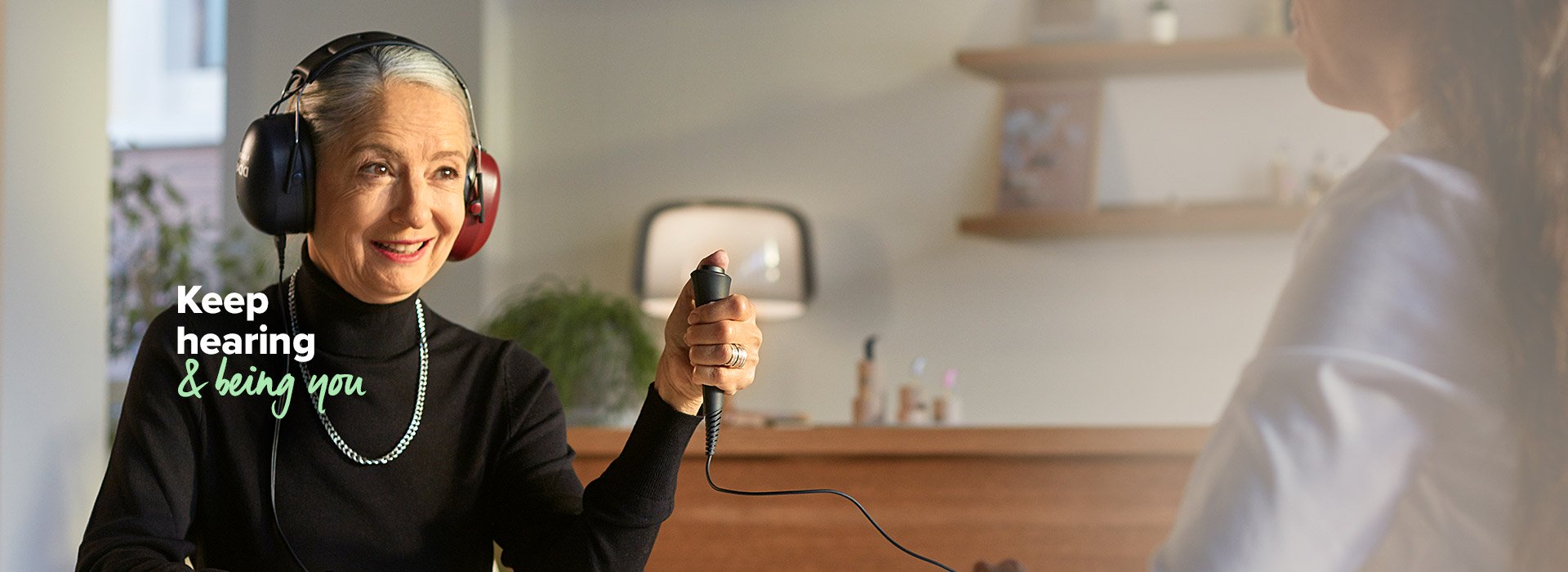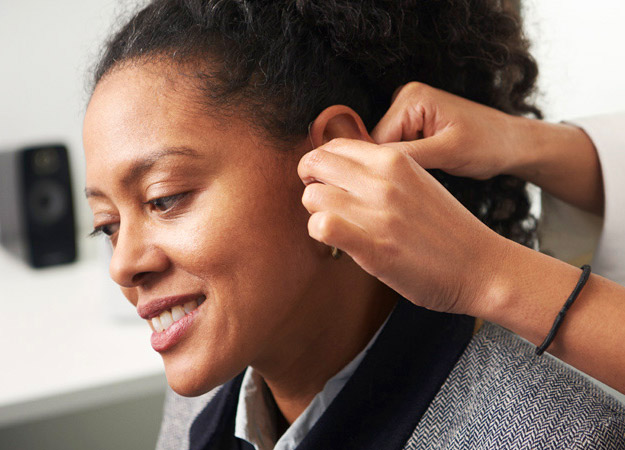6 signs and symptoms of hearing loss
The symptoms of hearing loss depend on the type, degree and cause of hearing loss.
If you recognise any of the below symptoms, we recommend getting a FREE* hearing check at a hearing clinic near you.
Do you recognise any of the above signs of hearing loss?
If you or someone you know can relate to any of the signs of hearing loss listed above, then it may be an indication of hearing impairment, and you should get your hearing checked.

Book a FREE* hearing check today
Degrees of hearing loss
The degree of hearing loss refers to the severity of the loss and is generally categorized as either mild, moderate, severe, or profound
It can be measured in decibels (dB), referring to how loud sounds need to be for you to hear them.
Types of hearing loss
Sensorineural hearing loss
The most common type of hearing loss is called sensorineural hearing loss. It can be caused by damage to tiny hair-like cells in the inner ear or damage to the auditory nerve. Often, this type of hearing loss can be managed with hearing aids.
Conductive hearing loss
This type of hearing loss comes from a mechanical problem in the middle or outer part of the ear. Conductive hearing loss can also be caused by an obstruction of some sort in the canal of the ear, such as earwax preventing sound from getting to the ear drum. It can be treated and/or managed using hearing aids or other medical options.
Mixed hearing loss
Mixed hearing loss is when both aspects of sensorineural and conductive hearing loss are present.
Facts about hearing loss
Hearing loss is more common than you might think.
What causes hearing loss?
Understanding the source of your hearing issues gives our professionals insight into your needs, so we can advise you with the best options for your specific treatment. That's why we encourage you to speak with our experts as soon as you notice any hearing difficulties.
Common causes of hearing loss include:
- Aging
- Excessive noise exposure
- Injury
- Viral infections (such as measles or mumps)
- Wax buildup
- Ototoxic drugs (medications that damage hearing)
- Genetics
Tip from an audiologist
No matter your level of concern, it is important to seek advice early when it comes to hearing loss.
The longer hearing loss is present the greater the impacts on your self confidence, relationships and health and the more life you miss out on!

Treating hearing loss
Hearing loss treatment and/or management may include: ear wax removal, hearing aids, surgery, cochlear implants or bone anchored hearing solutions.
The best solution for your hearing loss will depend on:
- Type of hearing loss
- Degree of hearing loss
- Cause of hearing loss
- Your budget
- Lifestyle, personal interests, cosmetic preferences and communication needs
5 steps to improving your hearing

How to prevent hearing loss
While there is no cure for loss of hearing, there are steps you can take to prevent it and reduce your chances of developing hearing loss over the course of your lifetime.
Learn more about healthy hearing practices and protection solutions that may help reduce hearing loss.
FAQ about hearing loss
Sources
1. Estimated by Audika using data from the Hearing Care Industry Association, Hearing for Life - The value of hearing services for vulnerable Australians, 2020 report as well as data from the Australian Bureau of Statistics.
2. Hearing For Life: The Value of Hearing Services For Vulnerable Australians - HCIA
Disclaimer
^Applies to Demant hearing devices only (Oticon, Bernafon & Sonic brands, excludes accessories.
~ Denotes most common dB classification used in Australian clinics.
1 Hearing aid(s) and all accessories must be returned to Audika in an undamaged condition within the 60-day change of mind return period. If the hearing aid(s) are returned in a damaged condition, Audika may in its sole discretion retain payment of the hearing aid(s) and/or claim from you any outstanding balance on the cost of the hearing aid(s). The 60-day change of mind return period does not impact and is in addition to your statutory consumer law rights, and any product warranty offered with the hearing aid(s).










